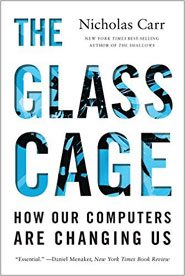 In the twenty-first century, the virtue of duty is paradoxically both greatly admired and shamefully despised. On the one hand, certain forms of duty, such as military service, are still widely appreciated. A common sight in airports, malls, and other public places is that of perfect strangers approaching soldiers in uniform and thanking them for their service. At their annual conventions, Medal of Honor recipients are treated like royalty by massive crowds eager to shake hands with men who put everything on the line for the sake of duty to country.
In the twenty-first century, the virtue of duty is paradoxically both greatly admired and shamefully despised. On the one hand, certain forms of duty, such as military service, are still widely appreciated. A common sight in airports, malls, and other public places is that of perfect strangers approaching soldiers in uniform and thanking them for their service. At their annual conventions, Medal of Honor recipients are treated like royalty by massive crowds eager to shake hands with men who put everything on the line for the sake of duty to country.
Selfless devotion to duty still captivates many people. Americans venerate the Founding Fathers, not for their material possessions or worldly prestige, but because they were willing to sacrifice everything out of duty to a higher cause, immortally pledging to each other “our Lives, our Fortunes, and our Sacred Honor.” We consider our grandparents and great-grandparents members of the “Greatest Generation” for their fulfillment of duty to family and country that carried them through the Great Depression and to victory in World War II. Until recently, the Boy Scouts attracted generations of boys to a life of service and sacrifice that is expressed well in the Boy Scout Oath: “On my honor I will do my best, to do my duty to God and my country.”
 Learn All About the Prophecies of Our Lady of Good Success About Our Times
Learn All About the Prophecies of Our Lady of Good Success About Our Times
Duty can be defined simply as “something that one is bound to perform or to avoid.” As humans, we know that we are obliged to perform certain good acts and prohibited from doing evil ones. Duty presupposes the existence of morals, specific rules for living and acting that man must follow. These rules come to us either directly from God (such as the Ten Commandments) or indirectly through the natural law. Since man is a rational being, his acts are moral acts and therefore subject to these moral laws. He can know that he has a duty to follow these laws, that there is a right way and a wrong way to do things, and that “good is to be done while evil is to be avoided.”
Our notions of duty, however, usually remain vague and undefined in the specific circumstances of our daily lives. We rightfully praise great acts of military heroism or political courage, but no longer recognize the importance of performing the more ordinary but no less difficult day-to-day duties in our family, workplace, and most of all, our relationship with God.
Modern man no longer sees Our Lord Jesus Christ as the Sovereign Creator of Heaven and Earth, the giver of the Ten Commandments, and the Savior of the world to Whom we owe love and obedience, but rather as a type of Santa Claus who gives free stuff to people without any corresponding duties. God’s plan for the human race, and in particular for the family, is no longer obeyed. The notion of “vocation,” that God has a specific mission for each and every person that must be actively discerned and diligently followed, is forgotten. Life on this Earth is seen not as a field of battle for man to prove his love and fidelity to his Creator, but a big amusement park for man to have as much fun as possible.
By refusing to perform his duties to God, it is little surprise that modern man is shirking his duties to his neighbor. Husbands and wives think little of divorce or infidelity, no longer taking seriously their marital vows. Fathers and mothers come of resent their own children for the heavy responsibilities they represent. Children learn to prefer the thrill of breaking the rules without getting caught rather than the happiness that only comes from a job well done. Employees learn that it’s only stealing if you get caught. Courtesy and manners disappear as vulgarity and selfishness snuff out our sense of Christian charity and duty towards our family and neighbor. This dereliction of duty is leading our society to disaster.
Embracing Christ and the Cross
As with most virtues, the concept of duty is irksome to modern man. Our fallen human nature chafes under authority or rules, but our society takes this vice to the extreme. Previous generations associated the shirking of duty with poorly educated young children or immature adults. However, the sixties, with its “if-it-feels-good-do-it” ethic, has made this spirit of self-indulgent irresponsibility a mainstream phenomenon. This outlook despises not just certain duties in particular but the very notion of duty itself. Consequently, there are few words that inspire more resentment to modern ears than “thou shall,” or worse, “thou shalt not.”
In his quest for maximum happiness, modern man does everything he can to shirk his duties and maximize his pleasure. He dashes through life like a child in an amusement park, jumping from ride to ride in a frenetic drive to have the most pleasure, the least work, and the most goods in the shortest possible time. As a result, we have a generation of effeminate, immature, dysfunctional adults unwilling to fulfill the civic and familial duties required of them. This phenomenon has played no small part in our nation’s moral decay, the decline of social institutions, and the disintegration of the natural family. Worst of all, our “who-am-I-to-judge” culture which extols “tolerance” above all else makes it very difficult to sound the alarm for fear of sounding “hateful” or “intolerant.”
Faith Brings Harmony to Family, Society and State
Paradoxically, the shirking of duty and pursuit of pleasure has created the unhappiest generation in American history. Studies have shown that both men and women have reported a decrease in overall happiness over the last several decades. After receiving unprecedented access to job and educational attainment that feminists promised would make them happy—and eschewing their traditional duties and natural roles as wives and mothers—women have shown a significant decrease in reported happiness since the seventies.1
Unprecedented numbers of adult males are leaving their traditional duties of protectors and providers for their families, refusing to make a living or build a career, and living a carefree lifestyle of video games and casual sex. Mortality for middle-aged white American males aged 45-54, for example, has increased almost every year since 1998.2 Most of these deaths are due to drug overdoses, alcohol abuse, suicide, and preventable lifestyle diseases, accounting for nearly a half-million dead men who otherwise should be alive. The opioid epidemic alone has quadrupled since 1999, killing more people every year than car accidents and, for the first time in 2015, gun homicides. These are not the signs of a happy and prosperous society.
In The Glass Cage: How Our Computers Are Changing Us, Nicholas Carr describes a phenomenon observed by psychologists that Catholic theology has known for 2,000 years, namely, that people are generally very poor at choosing what will make them truly happy:
Those are symptoms of a more general affliction, on which psychologists have bestowed the poetic name miswanting. We’re inclined to desire things we don’t like and to like things we don’t desire. “When the things we want to happen do not improve our happiness, and when the things we want not to happen do,” cognitive psychologists Daniel Gilbert and Timothy Wilson have observed, “it seems fair to say we have wanted badly.” And as slews of gloomy studies show, we’re forever wanting badly.…[P]eople allow themselves to be guided by social conventions–in this case, the deep-seated idea that being “at leisure” is more desirable, and carries more status, than being “at work”–rather than by their true feelings. “Needless to say,” the researchers concluded, “such a blindness to the real state of affairs is likely to have unfortunate consequences for both individual well-being and the health of society.” As people act on their skewed perceptions, they will “try to do more of those activities that provide the least positive experiences and avoid the activities that are the source of their most positive and intense feelings.” That’s hardly a recipe for the good life.3
The key to regaining true, lasting happiness is the restoration of the lost virtue of duty. Doing our duty to God and neighbor—and doing it well—provides a satisfaction and sense of accomplishment. It gives meaning and purpose to our lives that a pleasure seeking lifestyle fails to provide. Without it, we go through life feeling empty, frustrated, and unhappy no matter how much power, prestige, or material possessions we have amassed. “Happiness,” writes Fr. Edward Garesché, S.J., “is the inward contentment, the peace and satisfaction, the moral well-being that comes to a person of prudence, justice, temperance, and fortitude, who does his work and discharges his duty to God and his fellowmen with patience, fidelity, uprightness, and kindness. Pleasure is merely the passing gratification of some faculty…happiness is a lasting state of inward contentment.”4 This happiness that comes from the fulfillment of duty is well within reach for twenty first century man.
How can we know our duty?
First, our duties must be in conformity with Faith and morals. Our obligations to God and His laws have first place in our lives. As Catholics, we must obey the precepts of the Church and Her traditional Magisterium as well as right reason and the natural law. In addition, the Church teaches us a set of clearly defined duties according to our state in life, whether religious, married, or single. We must pursue and love our God given vocation and its corresponding duties, not our “passion.” We must obey His morals, not our pleasure. And we must obey His natural law, not our “gender identity.”
Defending a Higher Law
Second, within our state in life we must pray to God and our Blessed Mother for the grace to enlighten our intellect to discern and choose correctly the more specific course of action we must take in our lives, and for the strength of will to follow it. God places us in specific circumstances that indicate what path we should take. He also bestows on us certain insights and inspirations that gently yet firmly direct us towards our true calling. Prayer is essential for us to correspond to these graces.
Fidelity to duty is a common thread woven across the history of Western civilization. Our great saints and heroes, from Saint Joan of Arc to Saint Thomas More, Charlemagne to Isabella of Spain, put their duty to God, Church, and country before their own personal interests. In modern times, our heroes and founding fathers from George Washington to Winston Churchill demonstrated an admirable sense of duty and a selfless devotion to their countrymen that forever changed history. These men and women, although they lived lives of suffering and sacrifice, nevertheless knew a supreme happiness that comes only from the accomplishment of one’s duties.
Learn All About Sr. Mariana de Jesus Torres
We too can imitate these saints and heroes by simply doing the duties that God, country, and family require of us. We don’t need to perform enormous penances or great acts of charity, but simply the Will of God and the duties of our state. As Our Lord said to Fatima seer Sister Lucia: “The sacrifice required of every person is the fulfillment of his duties in life and the observance of My law. This is the penance that I now seek and require.”5 It isn’t always easy, but it is within our grasp. It is also the simplest and most effective ways to fight against the moral chaos of the modern world and to attain true, lasting happiness.
Footnotes
- http://www.nber.org/papers/w14969.
- http://www.newsweek.com/2016/01/08/big-pharma-heroin-white-american-mortality-rates-408354.html.
- Nicholas Carr, The Glass Cage (New York, N.Y.: W. W. Norton & Company, 2015), p. 15.
- Edward F. Garesché, S.J., The Catholic Book of Character and Success (Manchester, N.H.: Sophia Institute Press, 2003), p. 62.
- https://www.thecatholicthing.org/2011/04/13/the-penance-now-required/.


